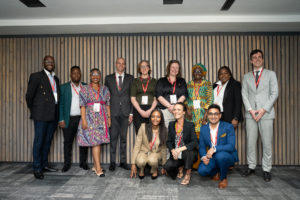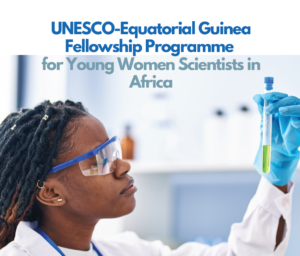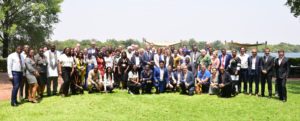GEOSCIENCE INFORMATION MANAGEMENT
Spatial Data Infrastructure – Data Modelling Interoperability Standards – Data Dissemination
DAR ES SALAAM, TANZANIA – 16-27 OCTOBER 2017
Dar es Salaam, 27 October 2017
“Spatial Data Infrastructure – Data modelling – Interoperability standards – Data dissemination”: a 10-day training session of the PanAfGeo programme was held in Dar es Salaam, Tanzania, 16-27 October 2017.
17 geodata professionals from 13 African countries (Botswana, Burkina Faso, Ethiopia, Ghana, Guinea-Bissau, Kenya, Malawi, Namibia, Niger, Nigeria, Sierra Leone, Tanzania and Uganda) took part in this training. It was jointly organised by the Geological Survey of Slovenia (Slovenia) and the African Minerals & Geosciences Centre (Tanzania). More than 150 applications have been received from Geological Survey Organisations throughout Africa. The applicants selected for this training represented different organisational units in these surveys and they had a varied background such as geologists, information technology specialists, cartographers, etc.
This training was organised as classroom type sessions including hands-on exercises using sample data sets with different open source software. The main theme of the training was on Spatial Data Infrastructure (SDI) i.e. how to make geological data interoperable and available to a wide range of stakeholders and end users. The participants presented their organisation and the level of existing SDI in the field of geology in their country.
PanAfGeo module WP7-B training focused on strengthening geosciences information management capabilities by presenting different methods, approaches, tools, procedures and requirements for interoperability standards, data modelling, data management and data publishing.
The interactive mode of learning through a systematic lecturing approach and practical exercises on computers facilitated a quick learning process in gaining new skills to use open source software such as GeoKettle, PostgreSQL, PostGIS, Geoserver and GeoNetwork.
Over the second week, each trainee had to prepare and present a Return-to-Work Plan as his/her active contribution to the WP7 capacity building process. This is an indicator of the successful implementation of the PanAfGeo training sessions. The trainees were requested to design a short-term application of their newly acquired knowledge through a project of interest for their Geological Survey Organisation and to be possibly implemented over a period of 3 to 6 months after the training.
These Return-to-Work Plans proposed a significant panel of objectives:
• Improving and reinforcing the skills of their colleagues in organising trainings on SDI;
• Designing a central database gathering all available data presently disseminated in the Geological Survey;
• Organising the scanning of vast data information already existing at their organisations;
• Building a metadata catalogue and setting up a web-enabled catalogue portal;
• Promoting the geoscience data online and populating existing web map portals.
The training curricula and material was organised by Ms. Špela Kumelj and Mr. Matija Krivic from Geological Survey of Slovenia (GeoZS, Slovenia). The successful completion of the training session was made possible by the dedicated work of Mr. Mesfin Wubeshet Gebremichael and Mr. Kamina Chororoka from the African Minerals & Geoscientific Centre in Tanzania (AMGC). The contributions from the WP7 Leader, Mr. Marc Urvois from French Geological survey (BRGM) with support of WP7 co-Leader Mr. Abdoulaye OUEDRAOGO from the Bureau of Mines and Geology of Burkina Faso (BUMIGEB) were also instrumental in this success.
Special thanks are also intended to Mr. Ibrahim Shaddad, General Director, AMGC, who made the AMGC facilities available to make this training possible in the best conditions.
Coming training sessions:
PanAfGeo Work Package 7 (WP7) “Geoscience Information Management” long-term objectives are:
(1) Geological knowledge management and dissemination of public information through national nodes within a pan-African network along with a geological and mineral information system to support activities developed by a wide panel of national and regional stakeholders;
(2) To improve and/or strengthen the skills and capabilities among the staff employed by the African Geological Survey Organisations in the field of geoscience information management and related information technologies:
o Database management, handling of spatial data and GIS interface (WP7-A)
o Spatial data infrastructure-Data modelling-Interoperability standards-Data dissemination (WP7-B)
o Multilayer 3D geological modelling using dedicated geoscience software (WP7-C)
The next training session (WP7-A) will take place in Accra, Ghana (20 Nov – 1 Dec. 2017).









